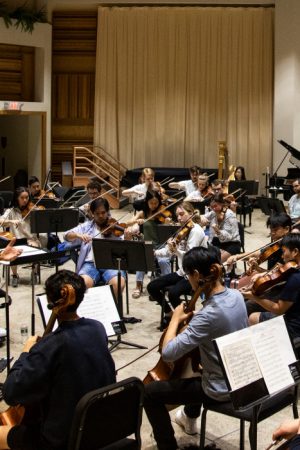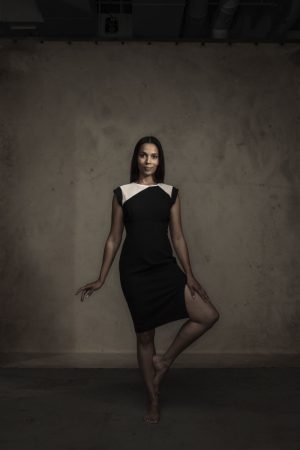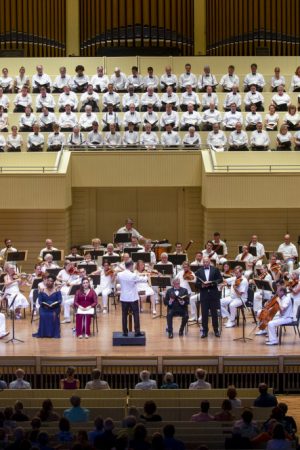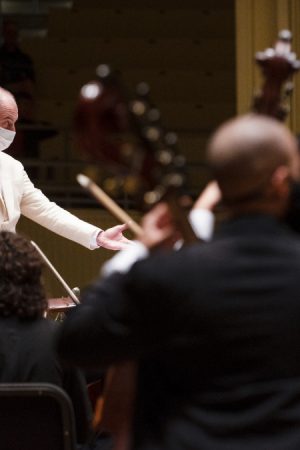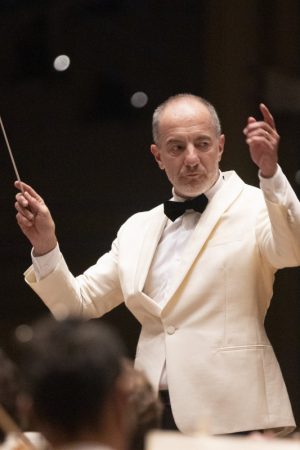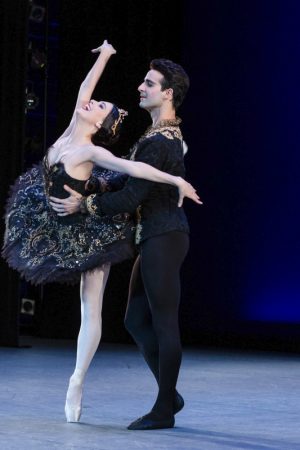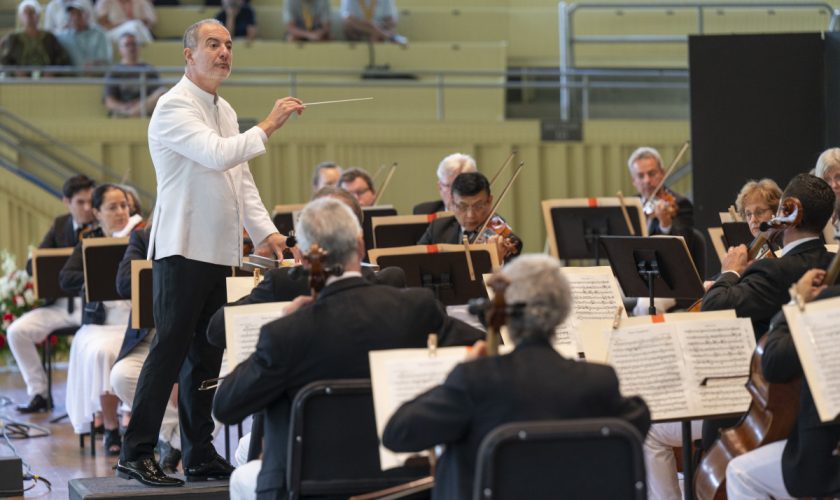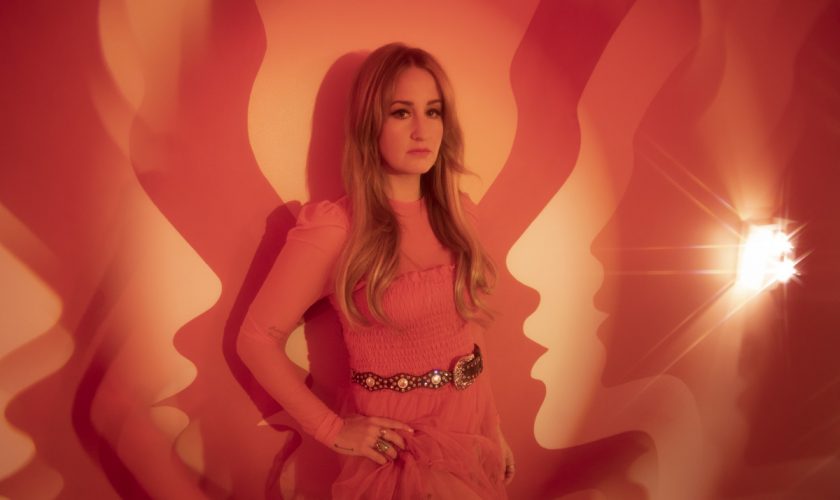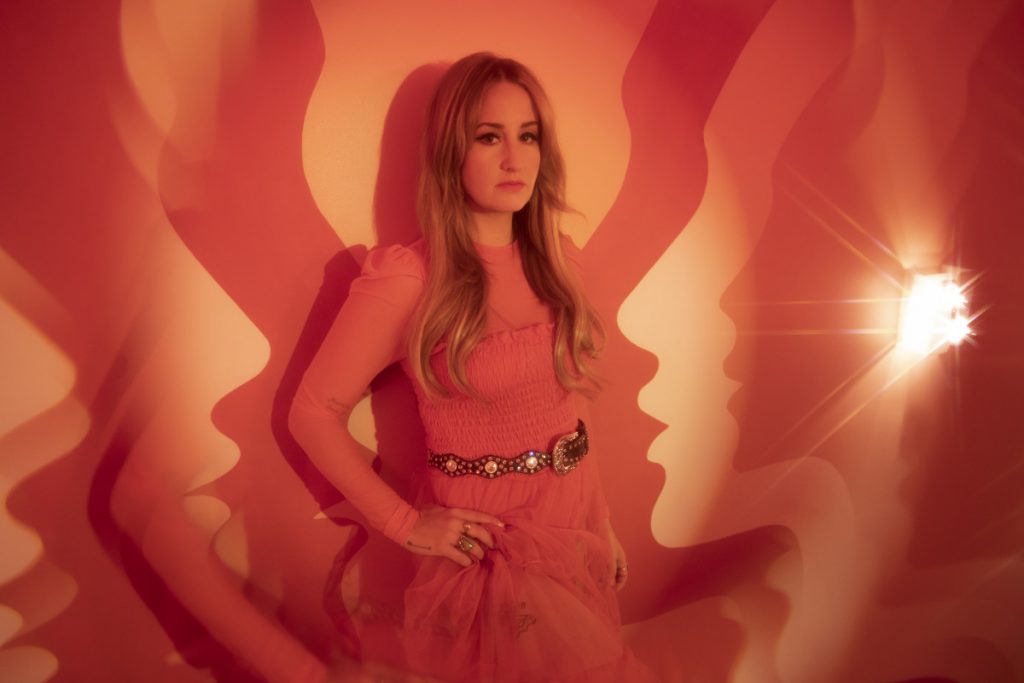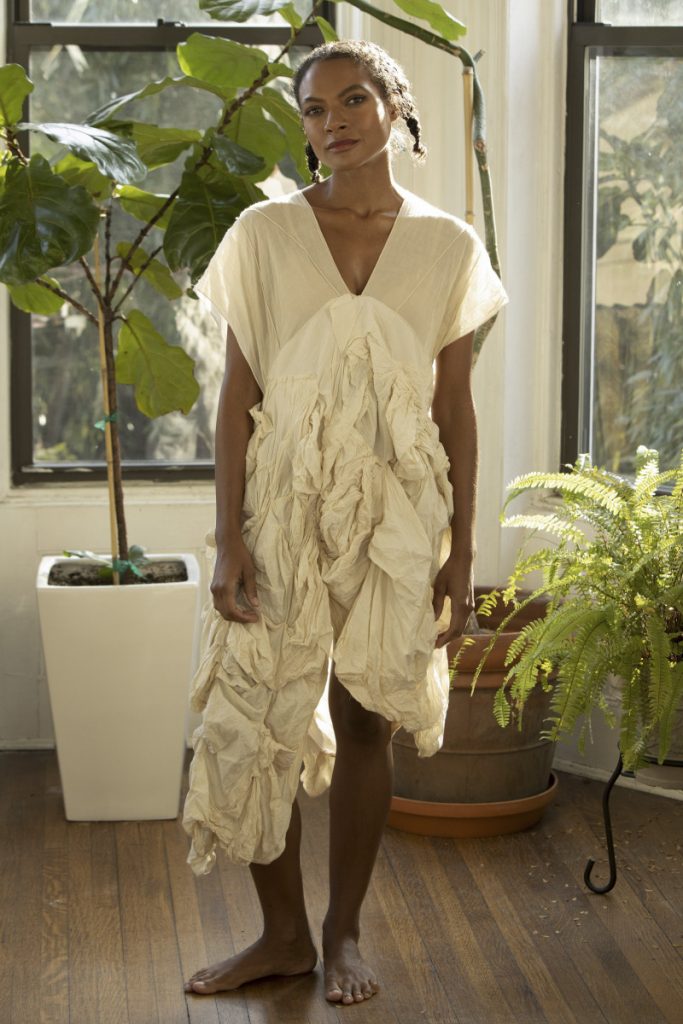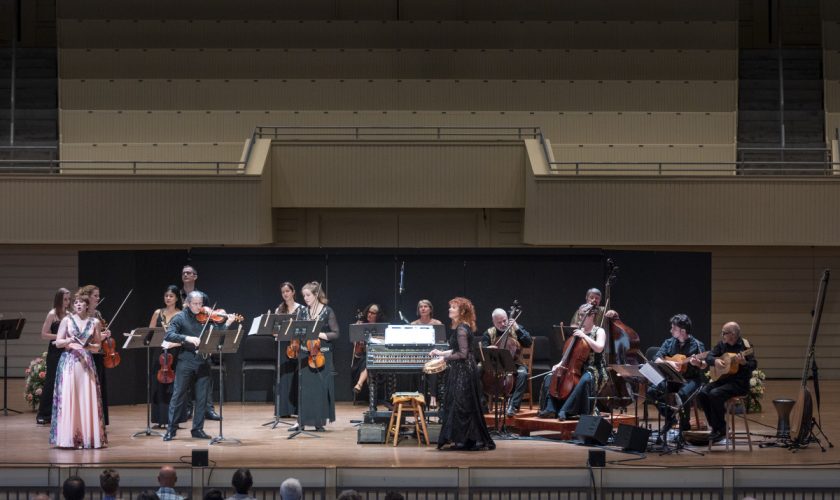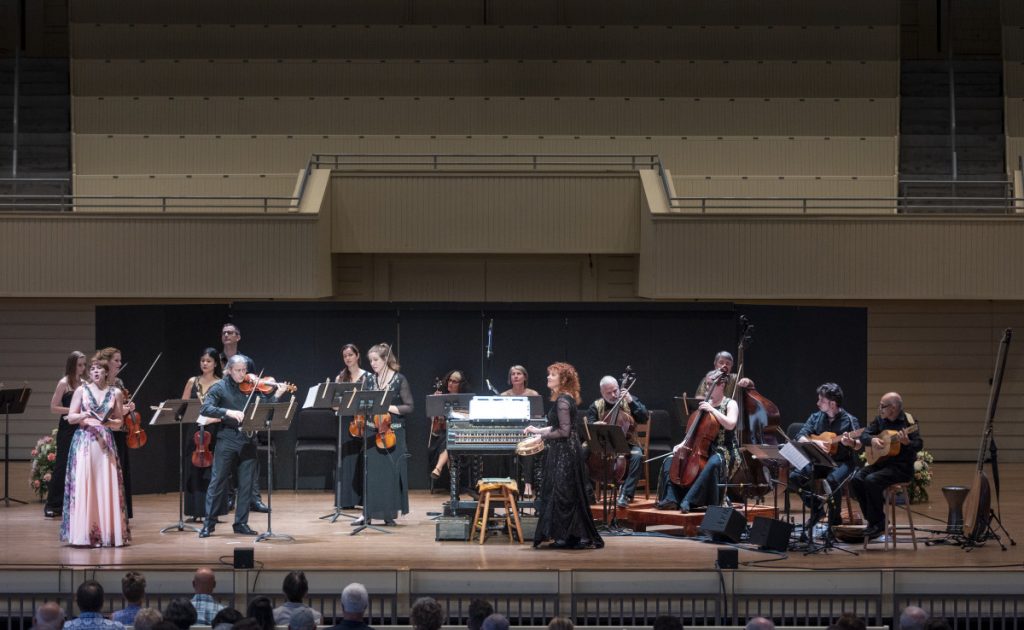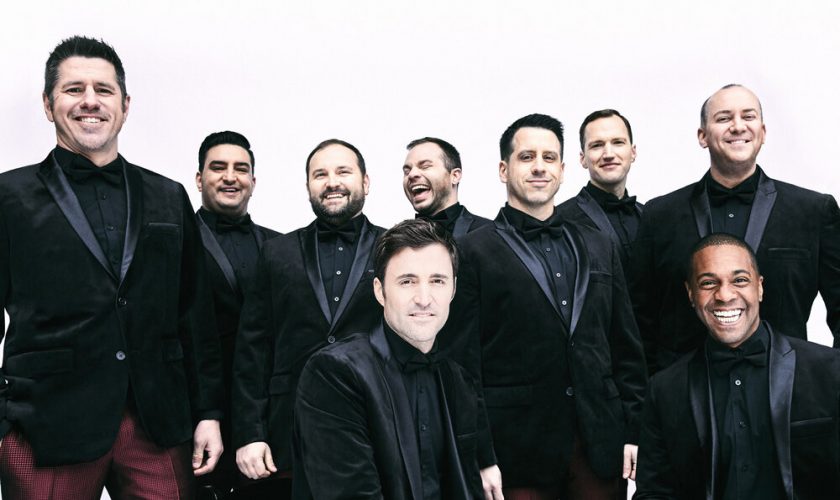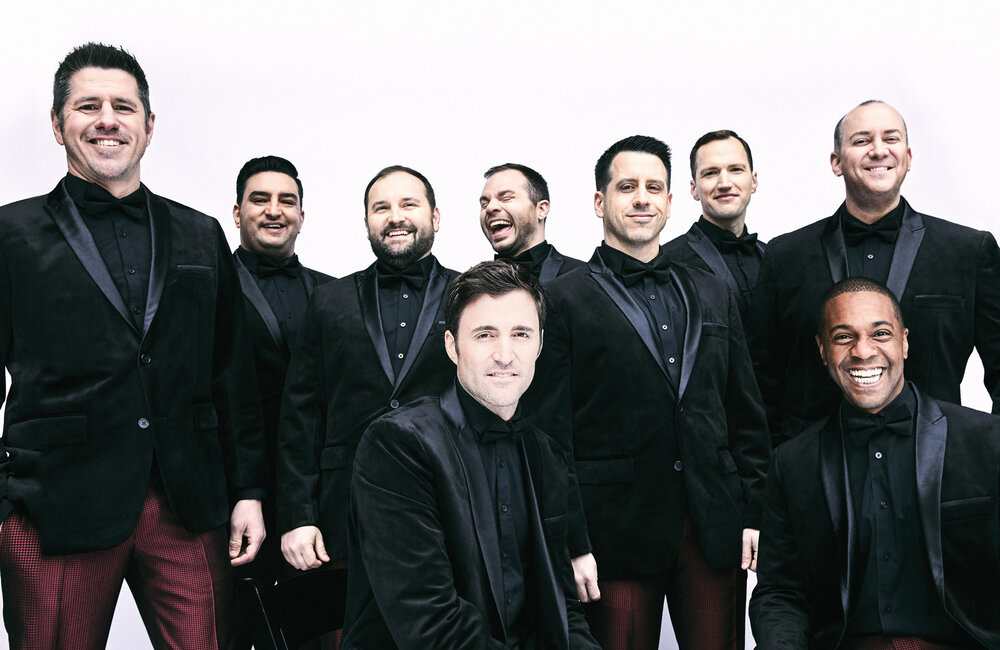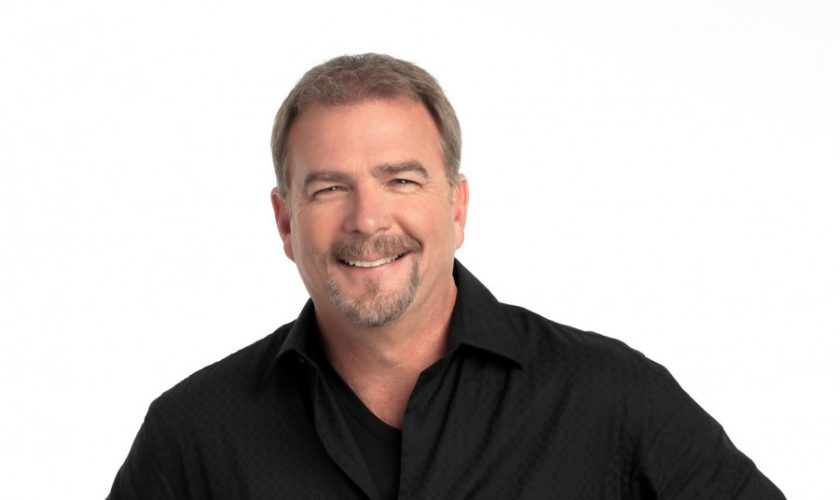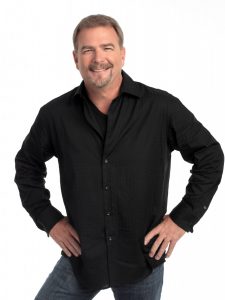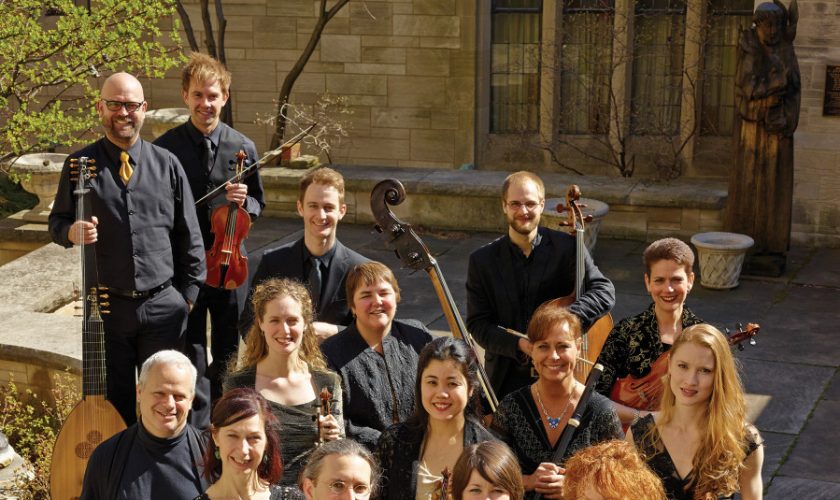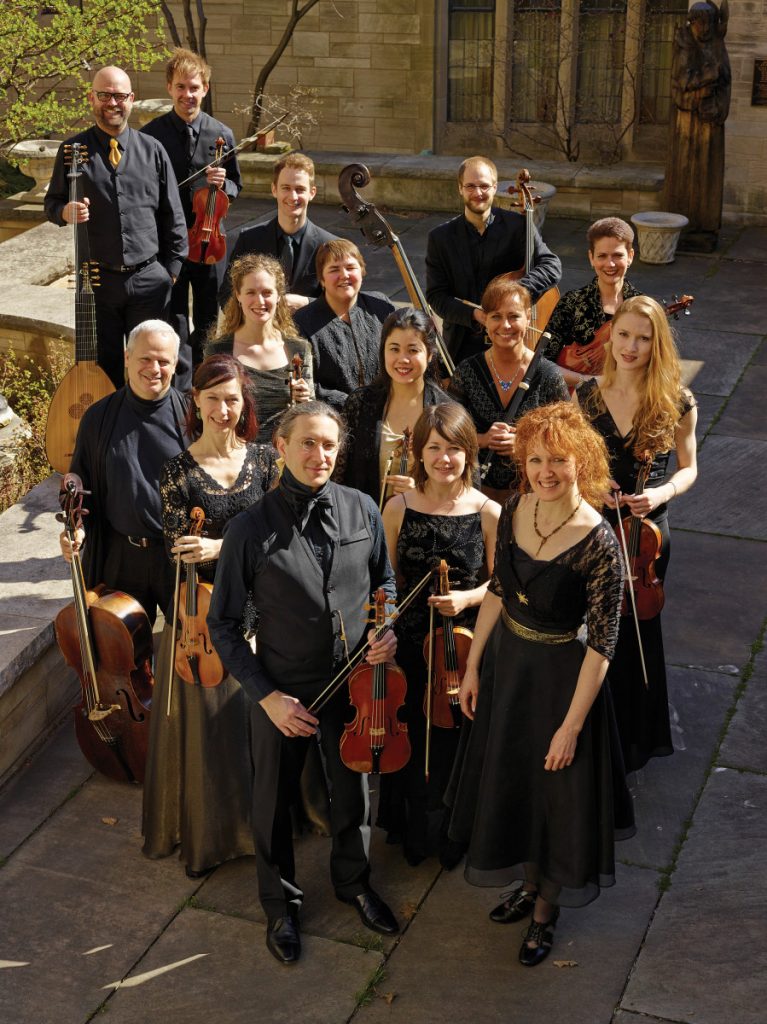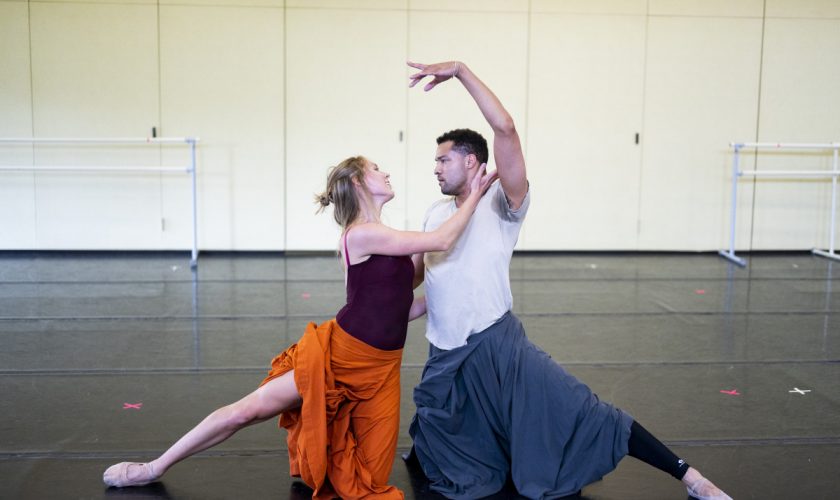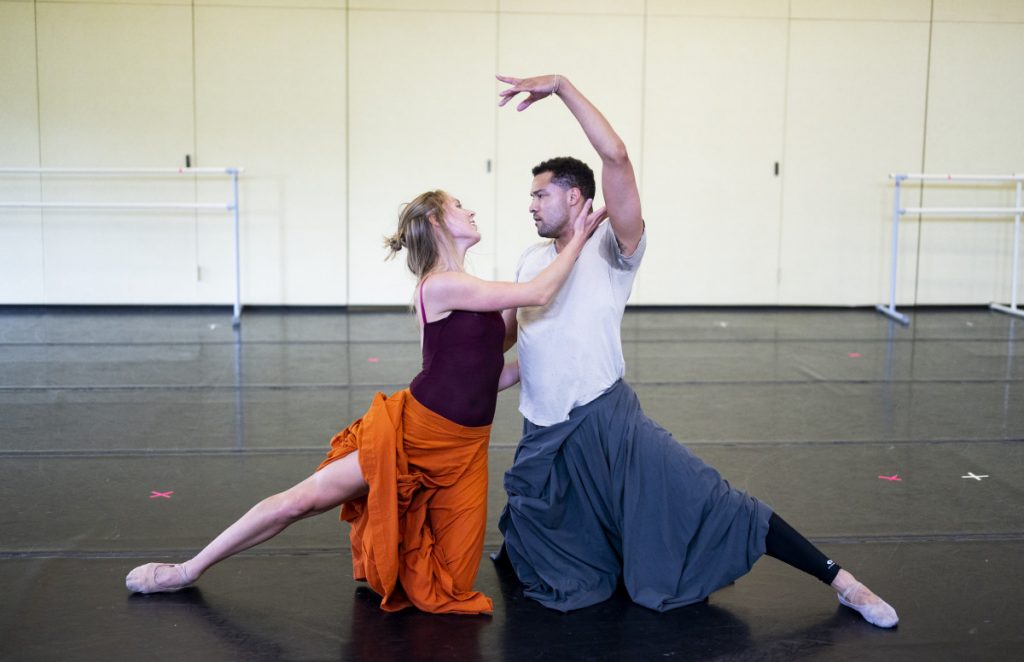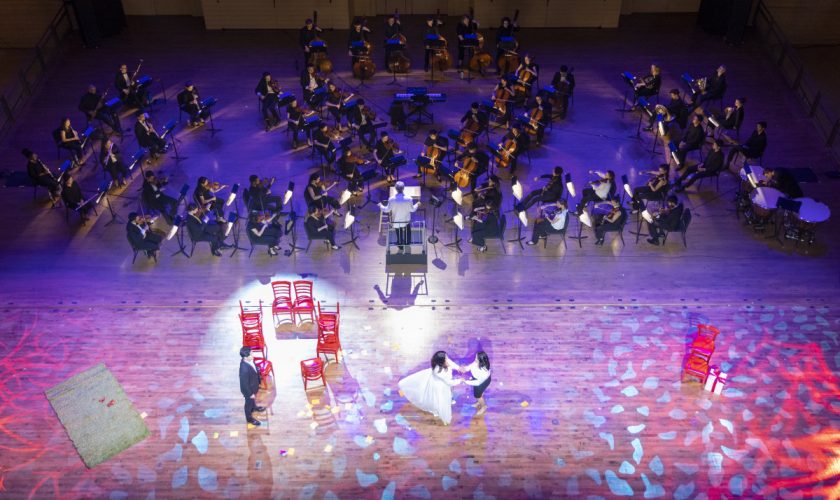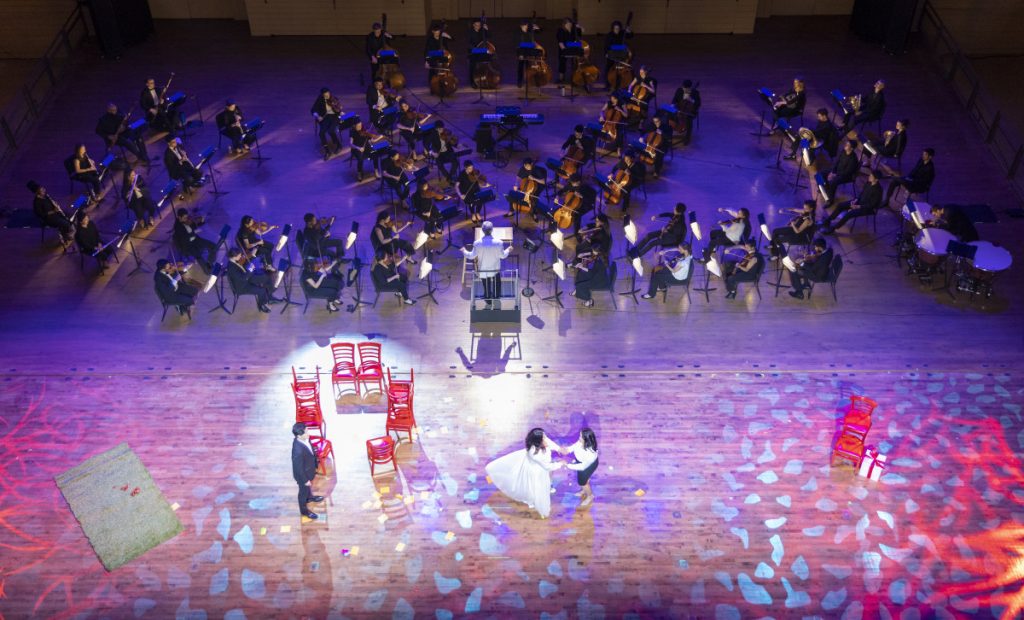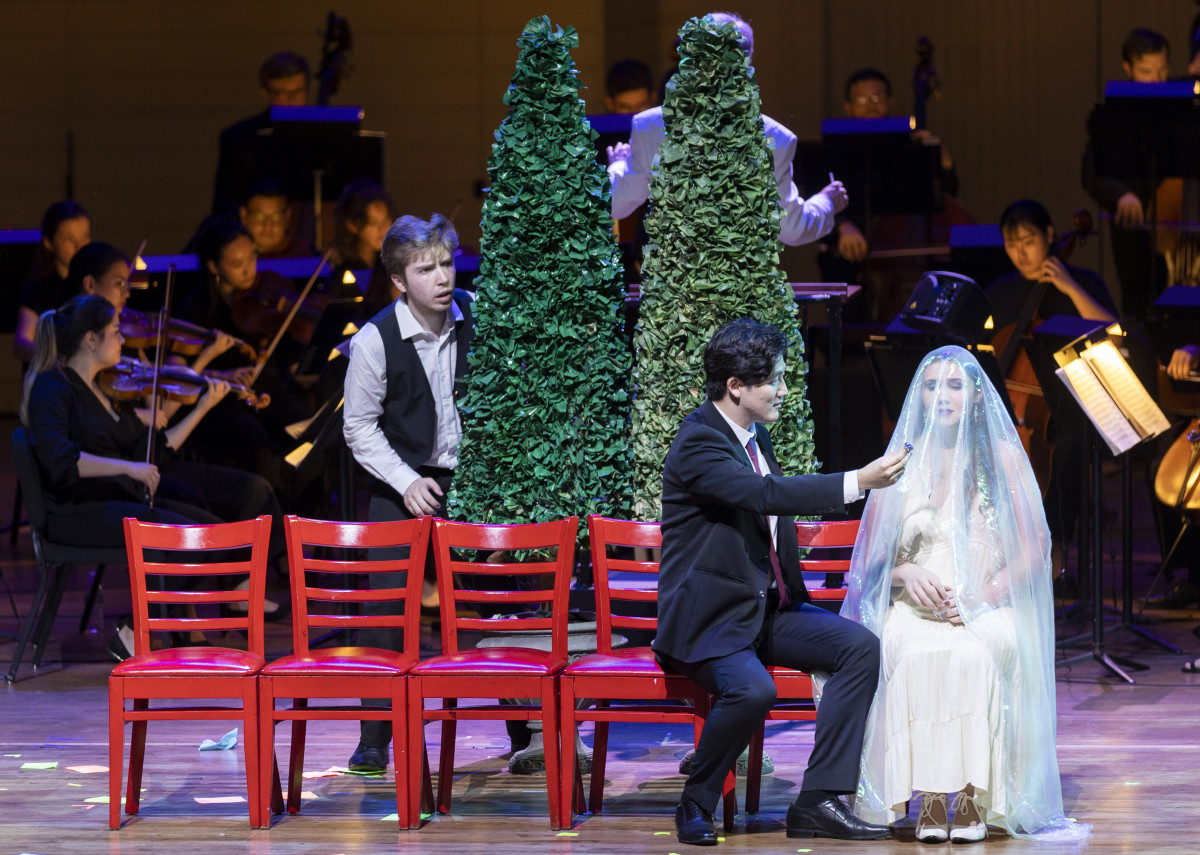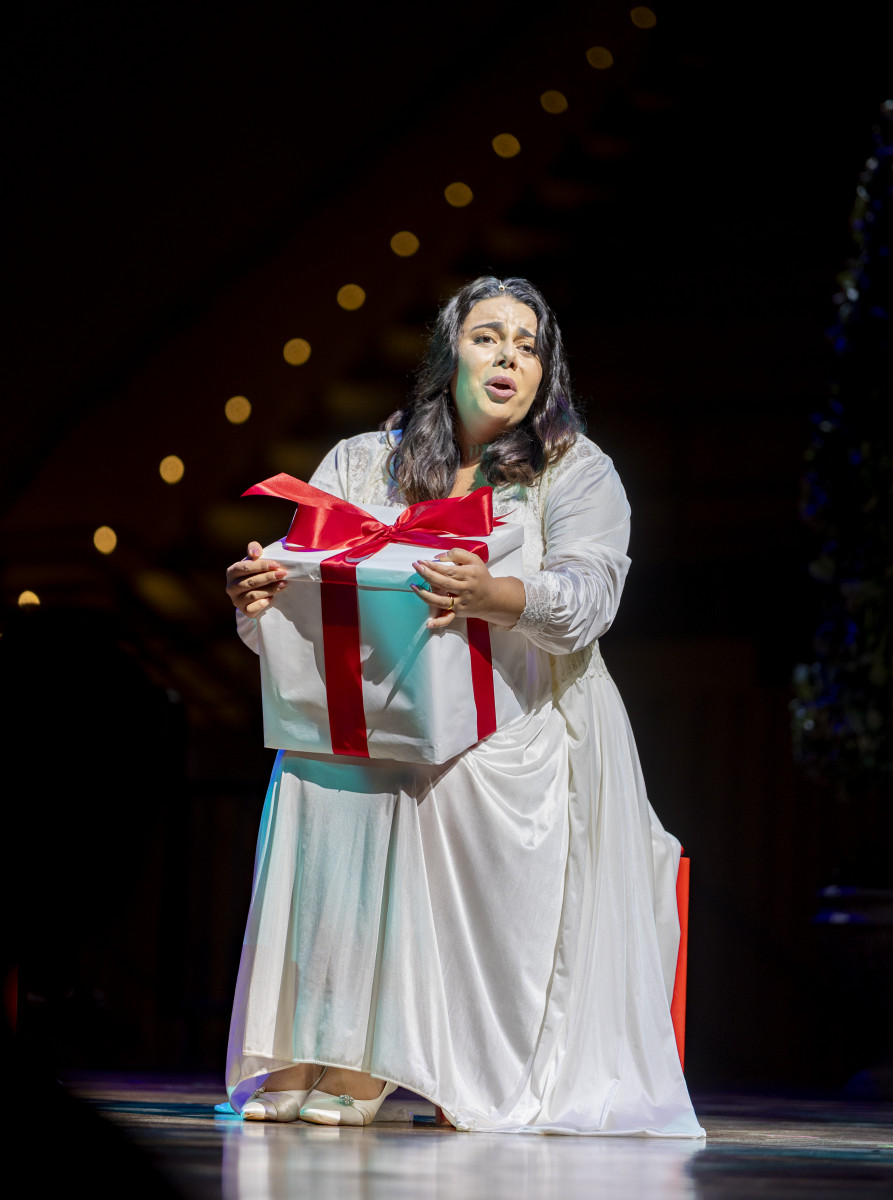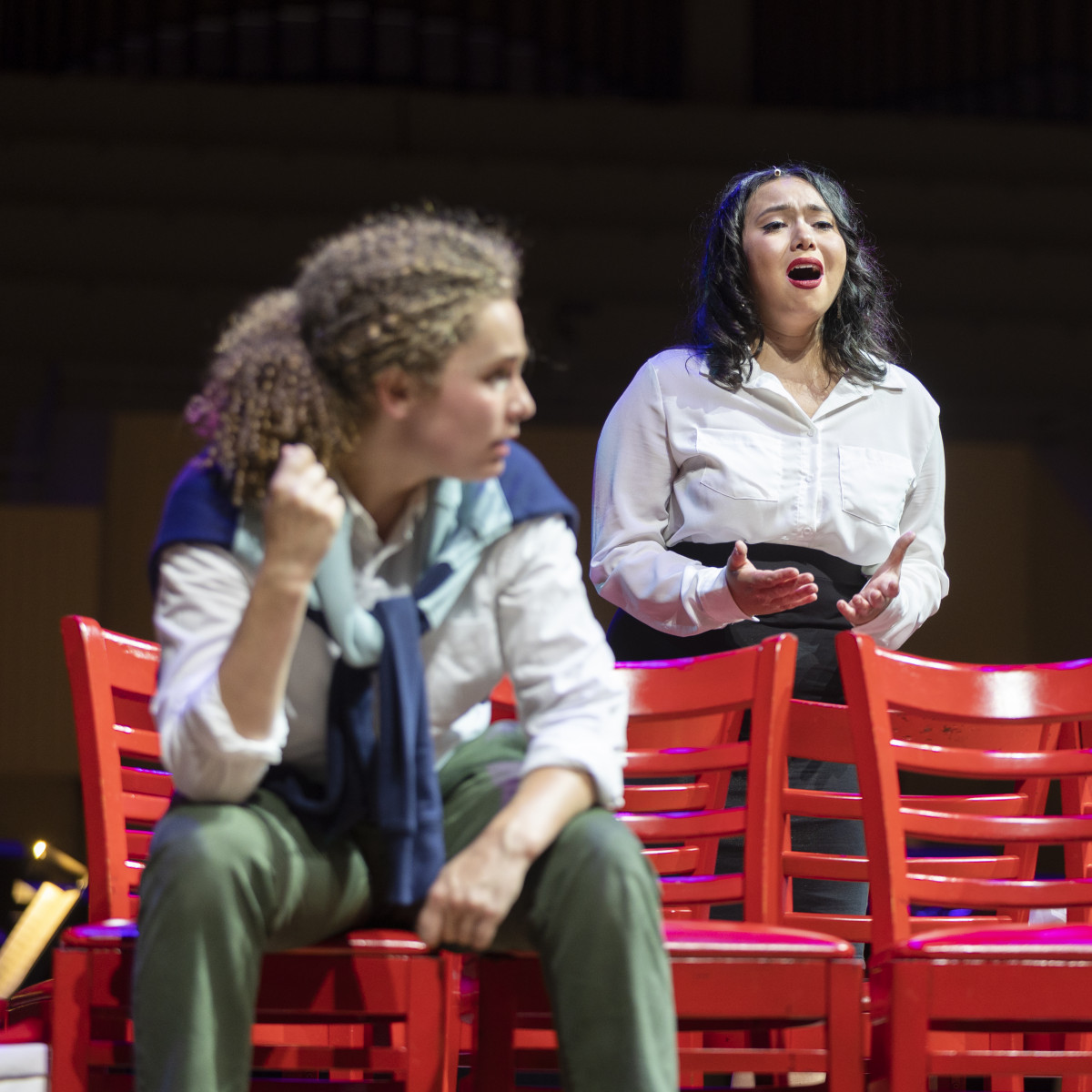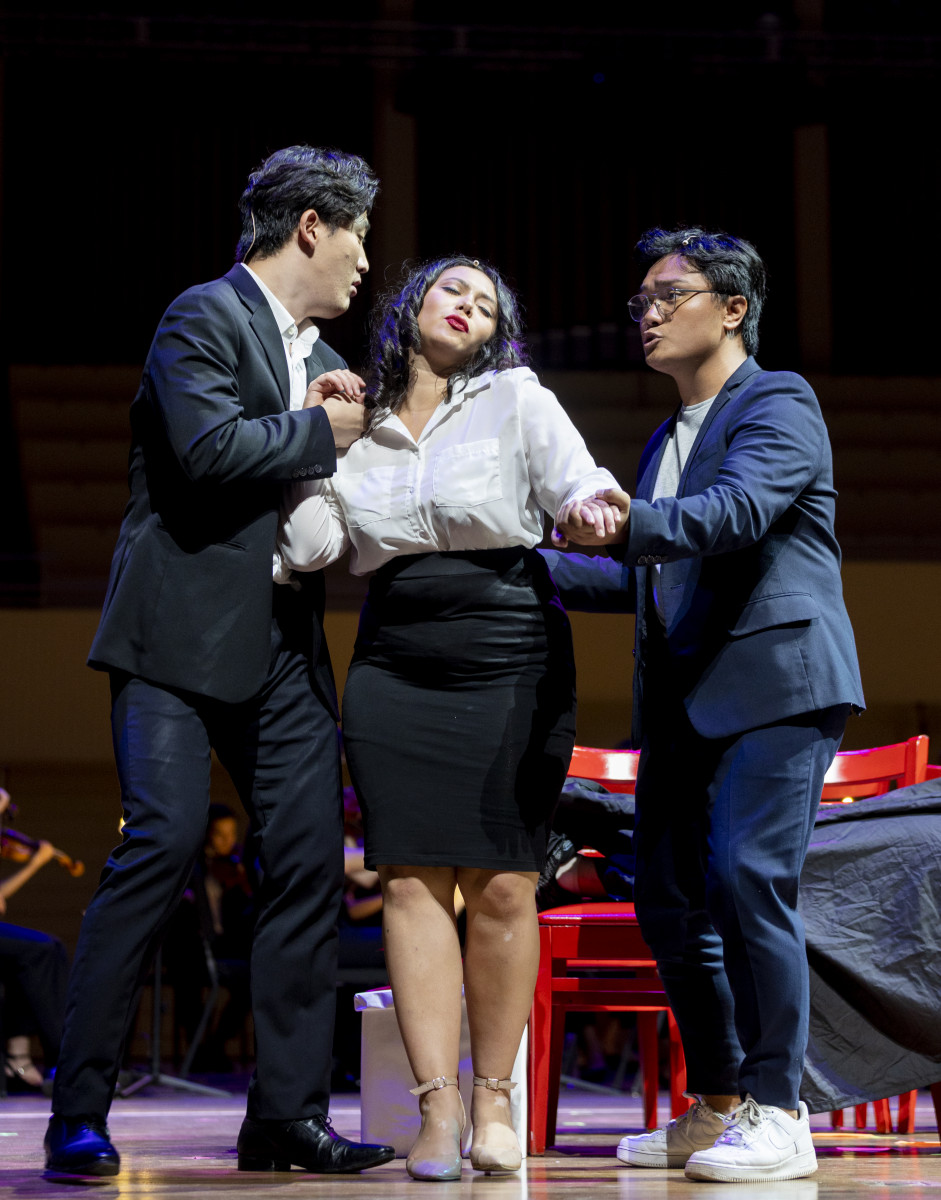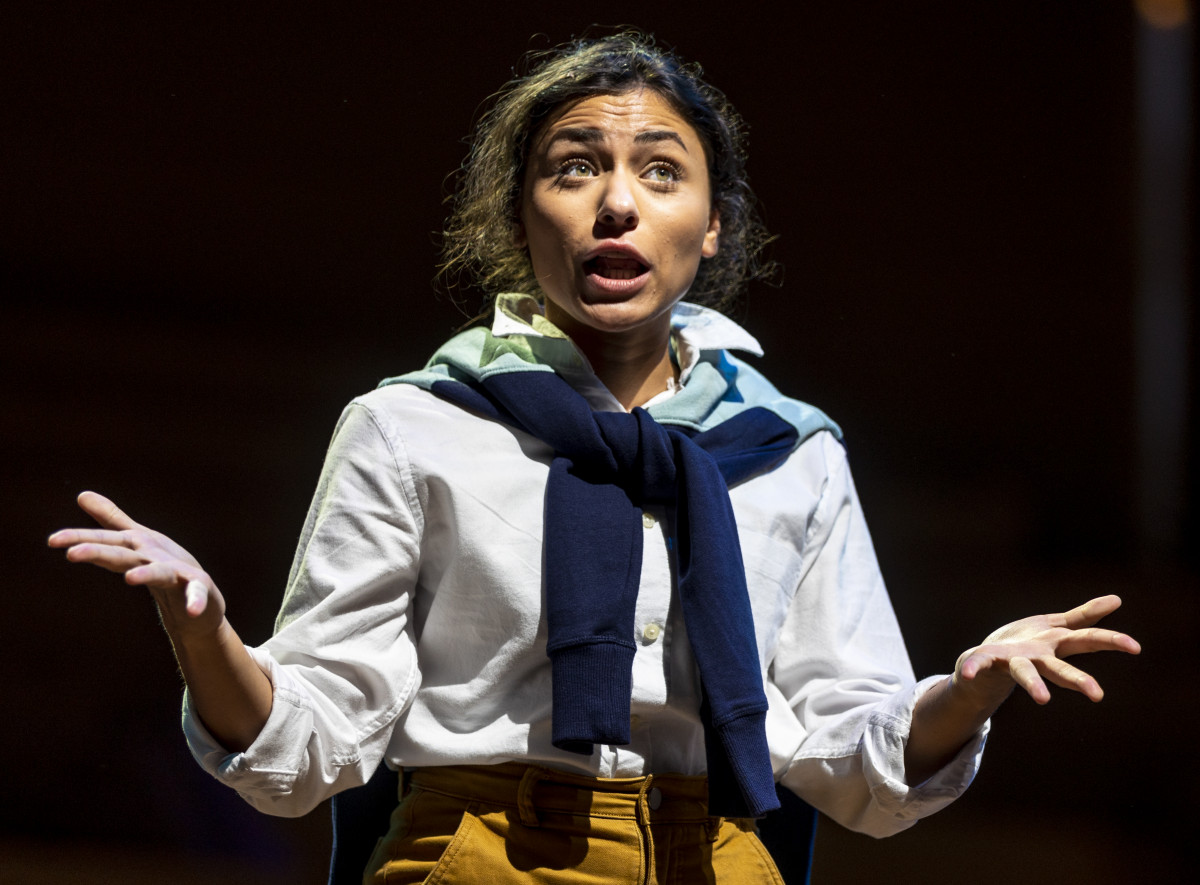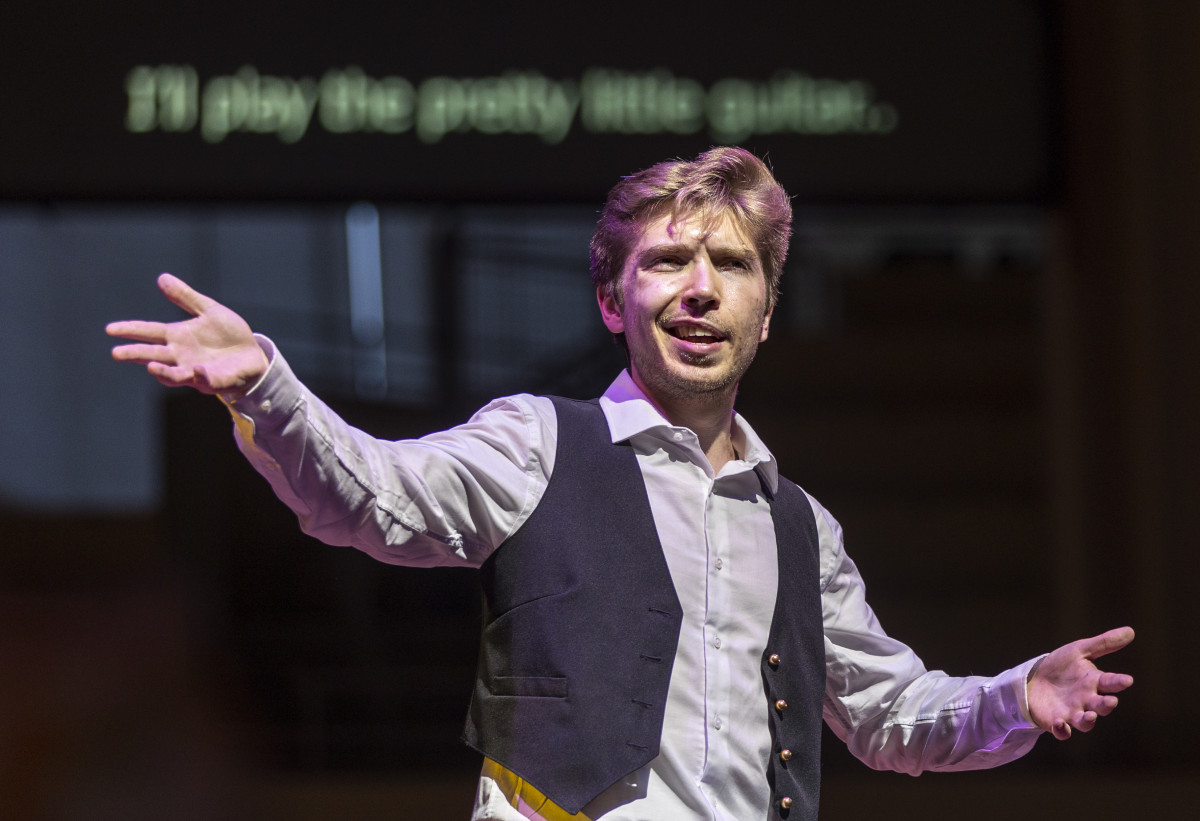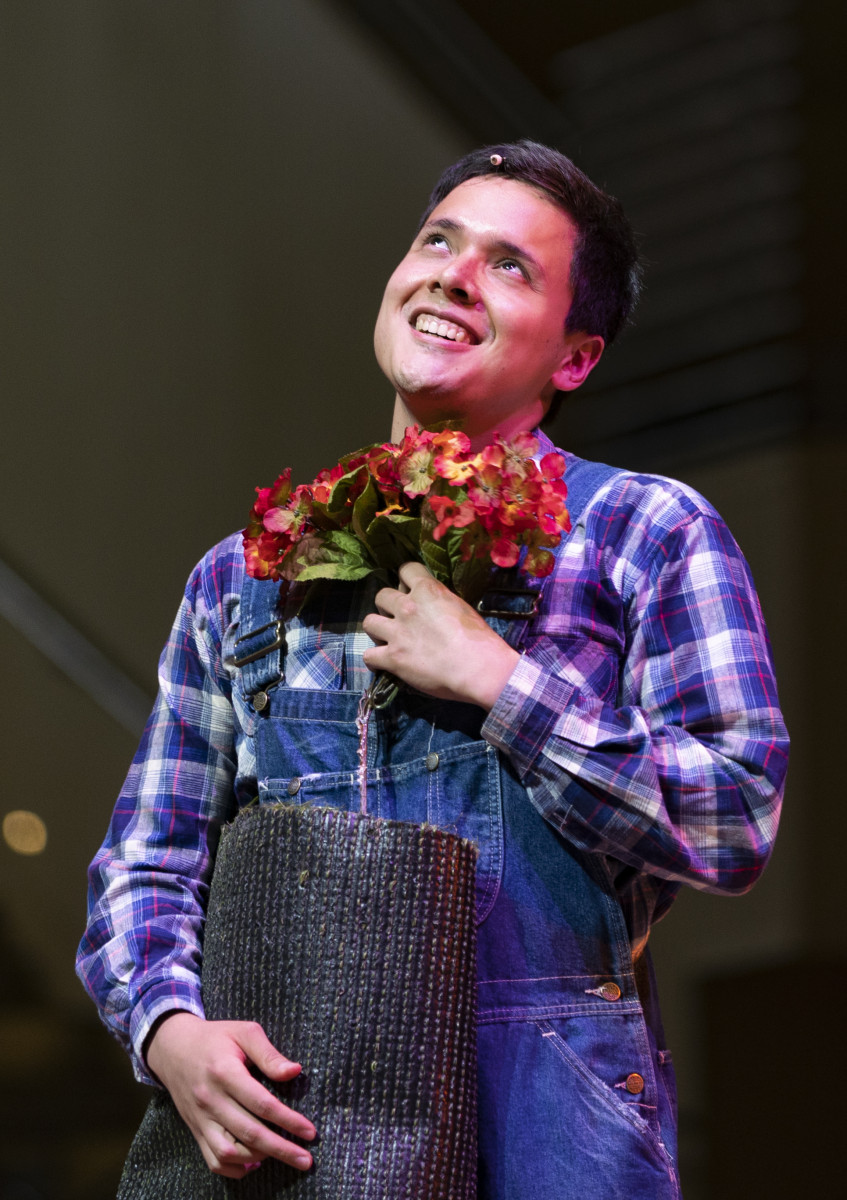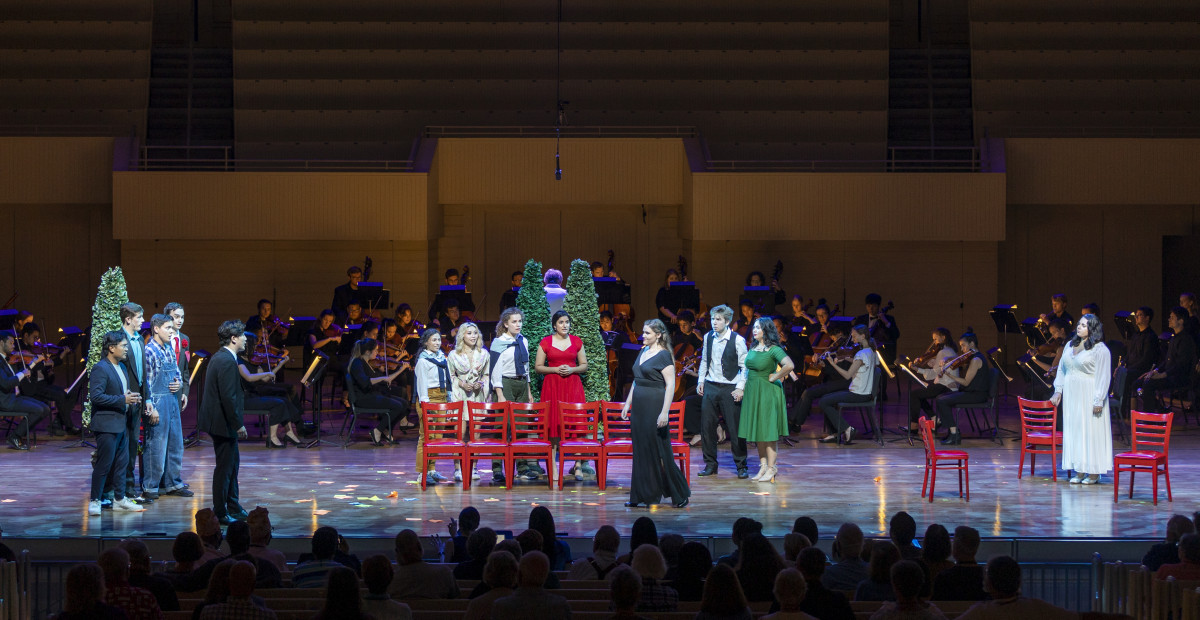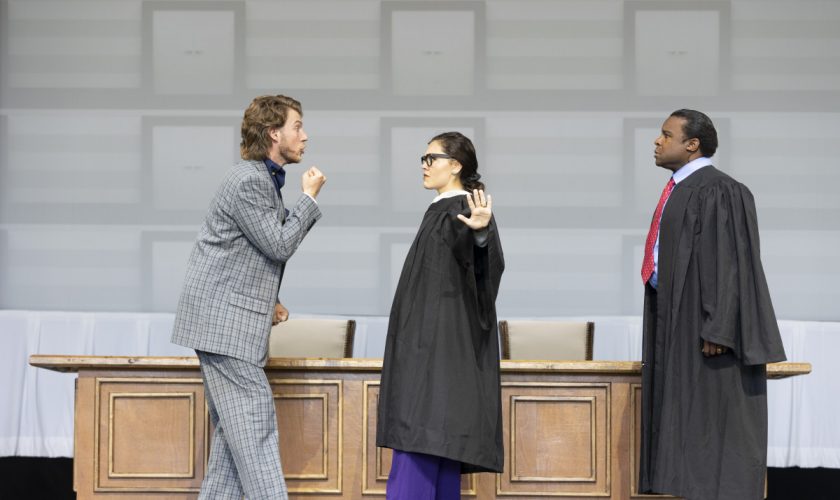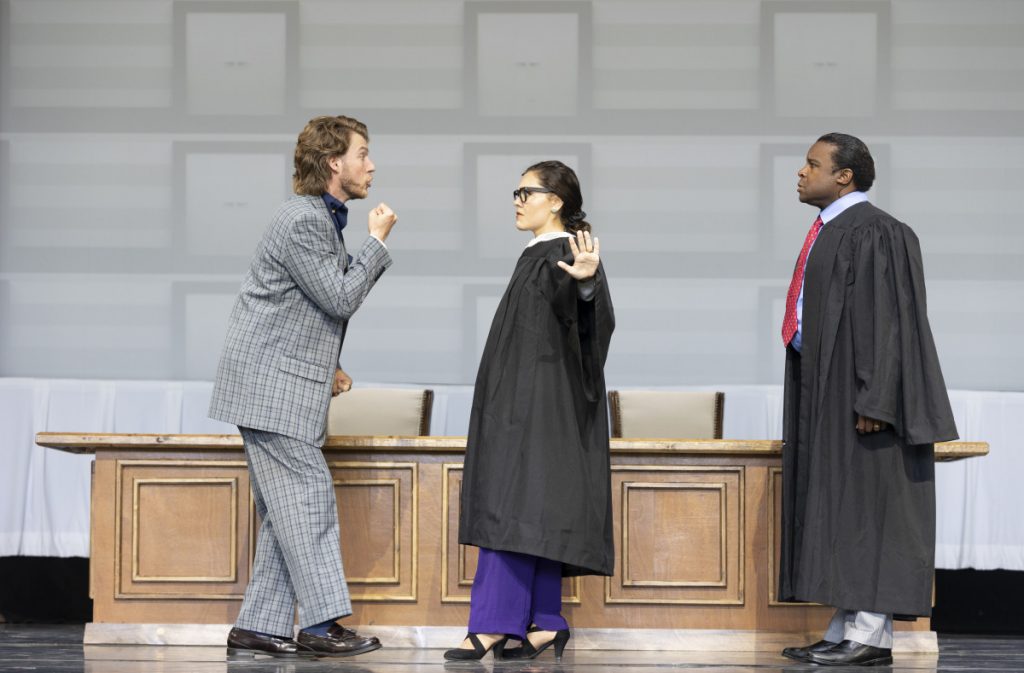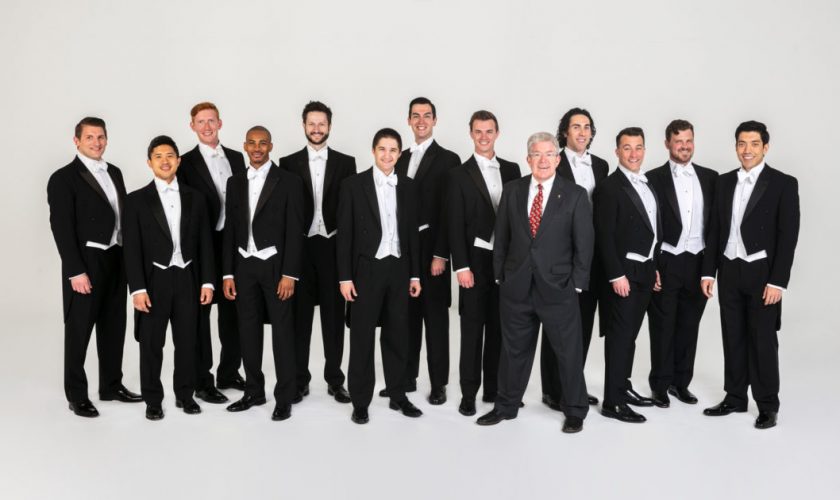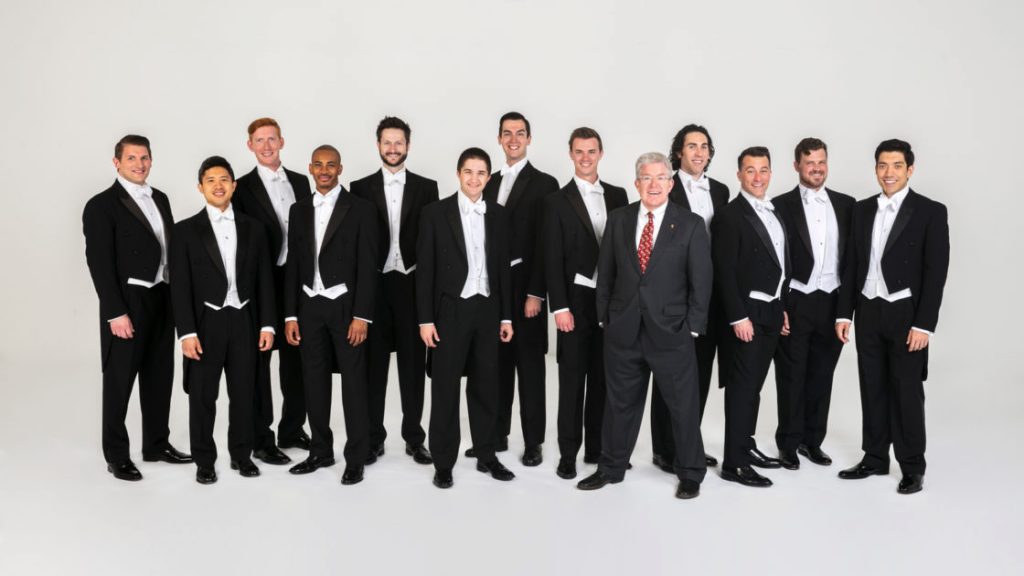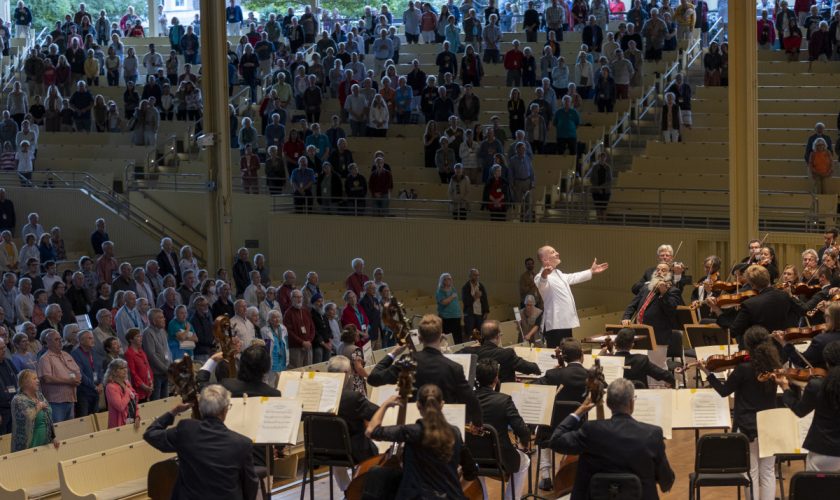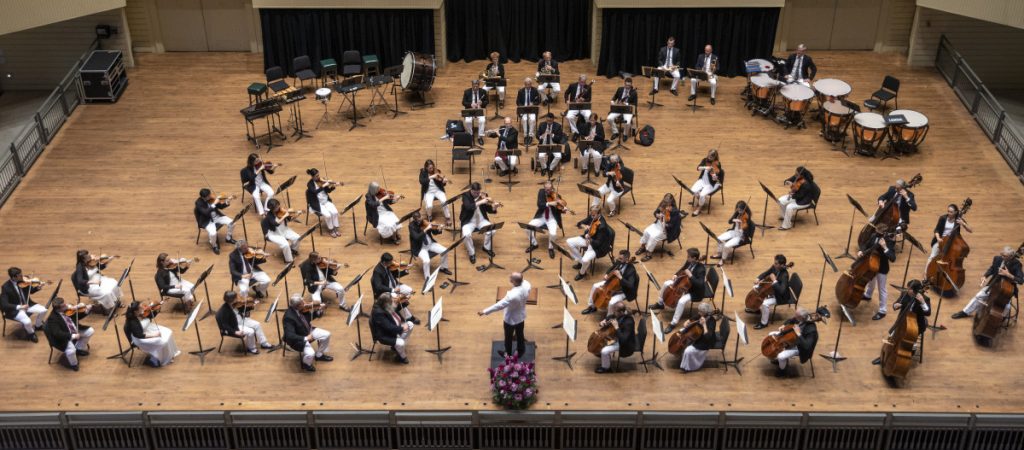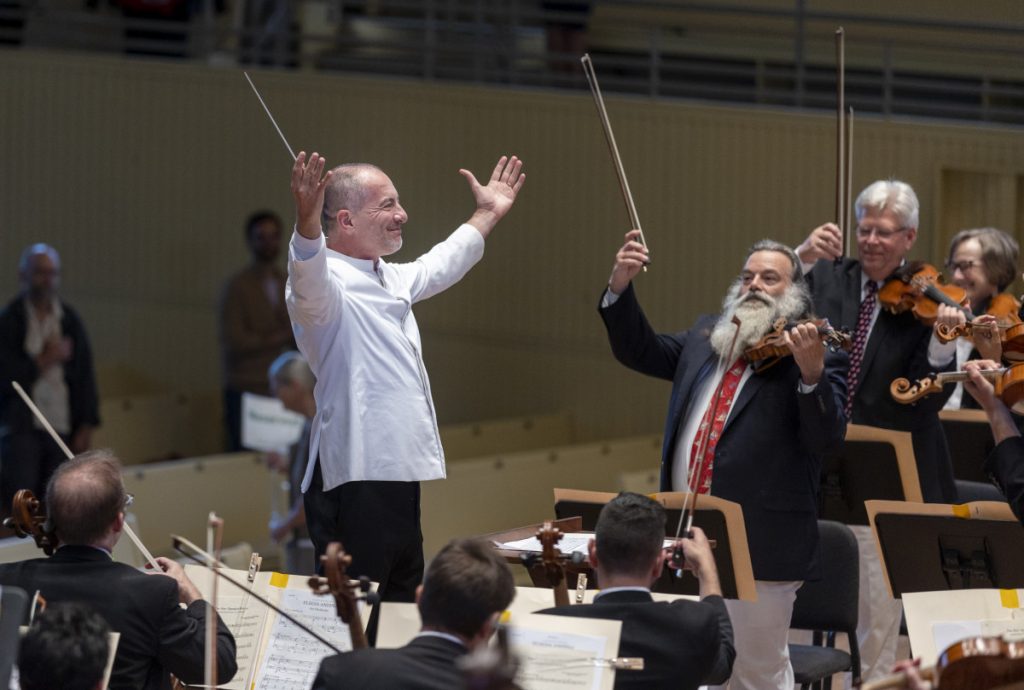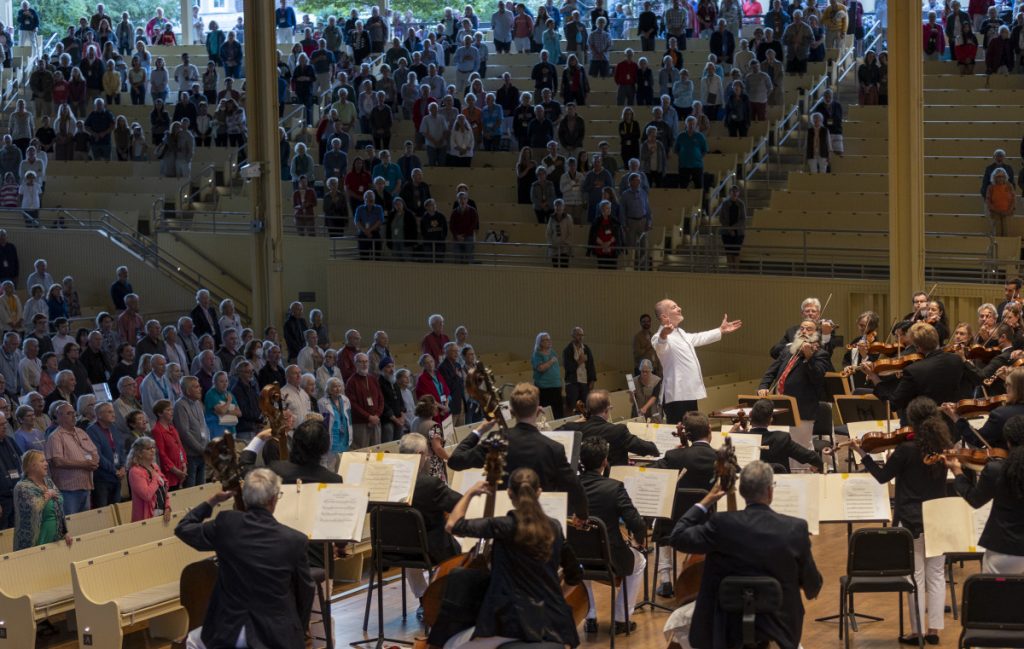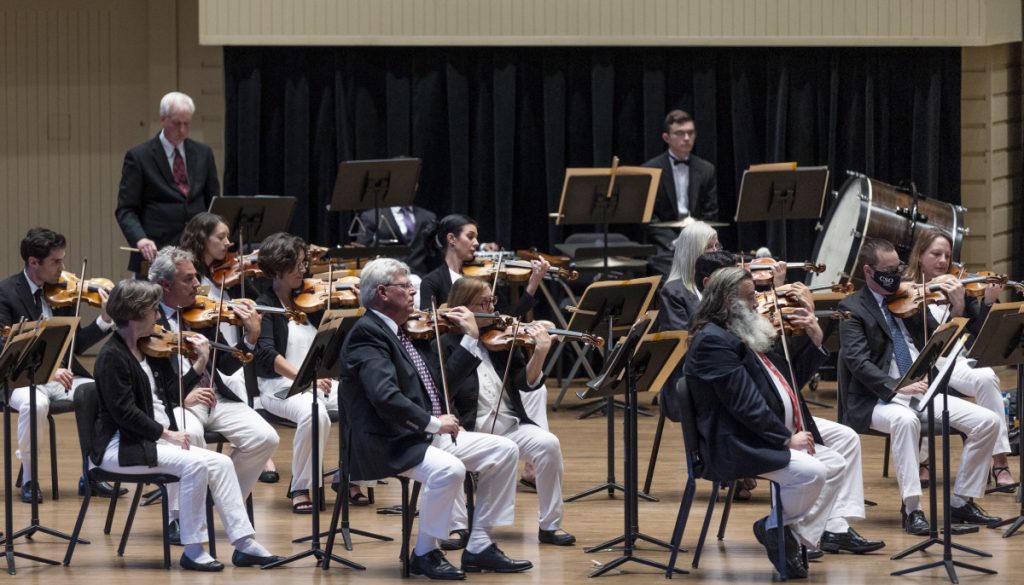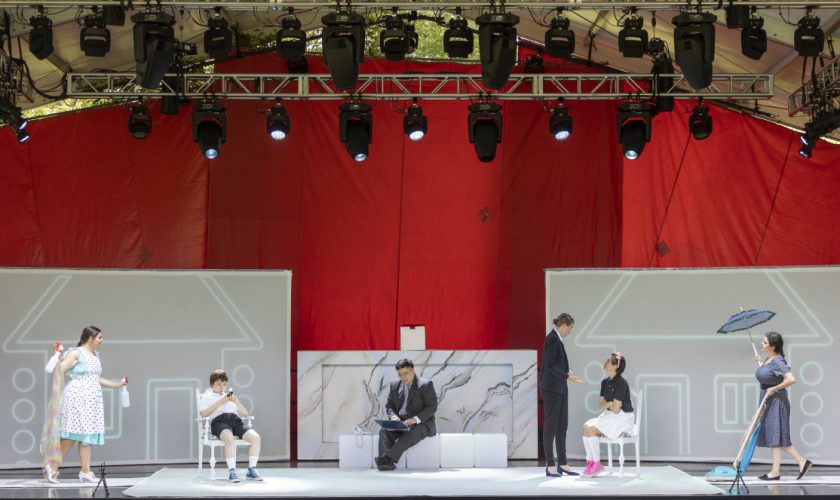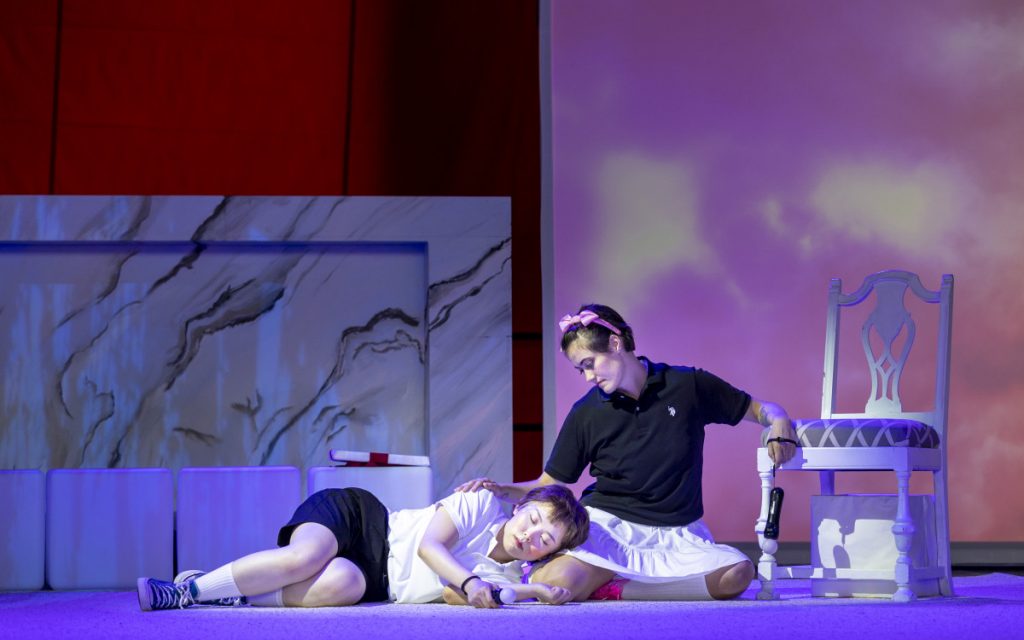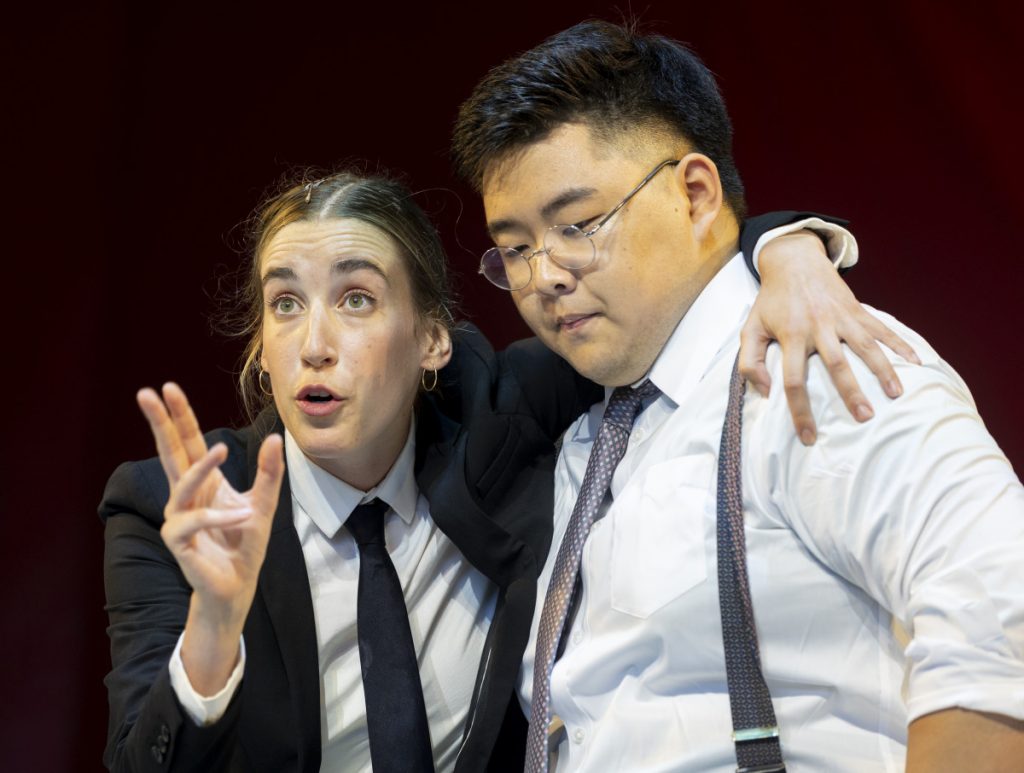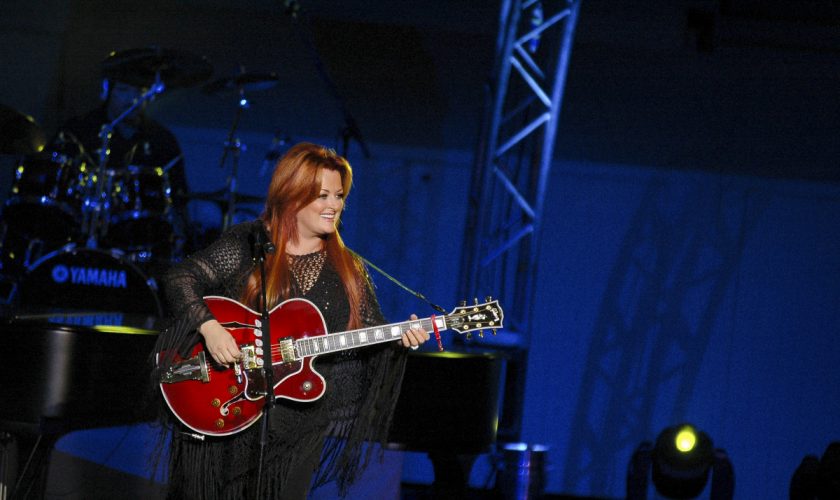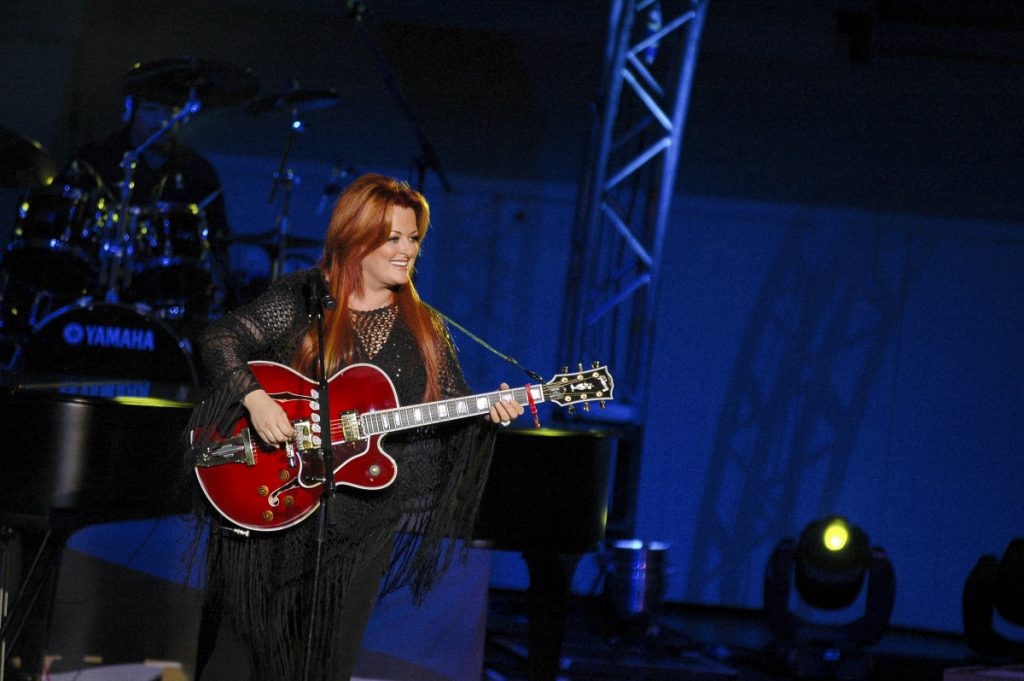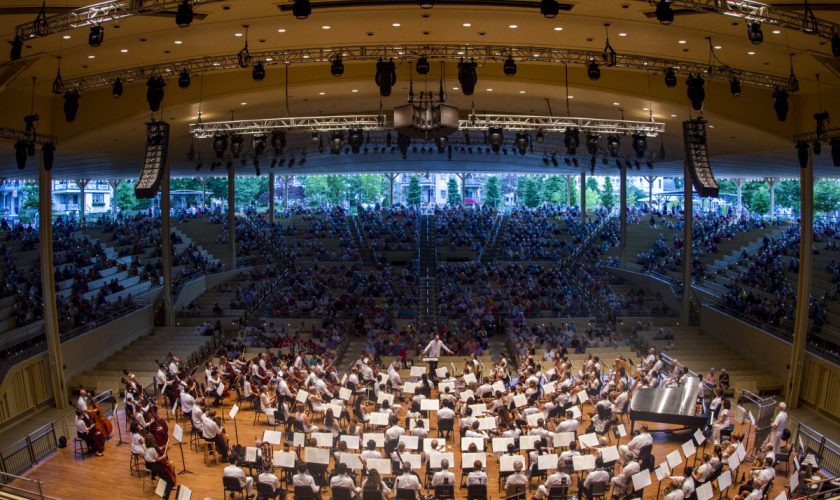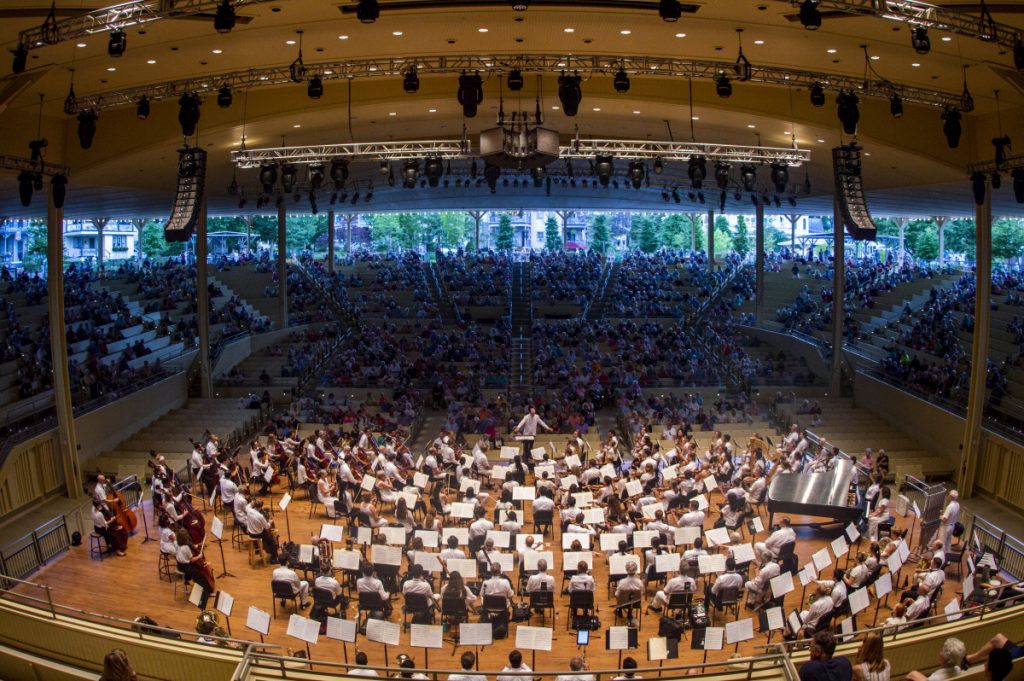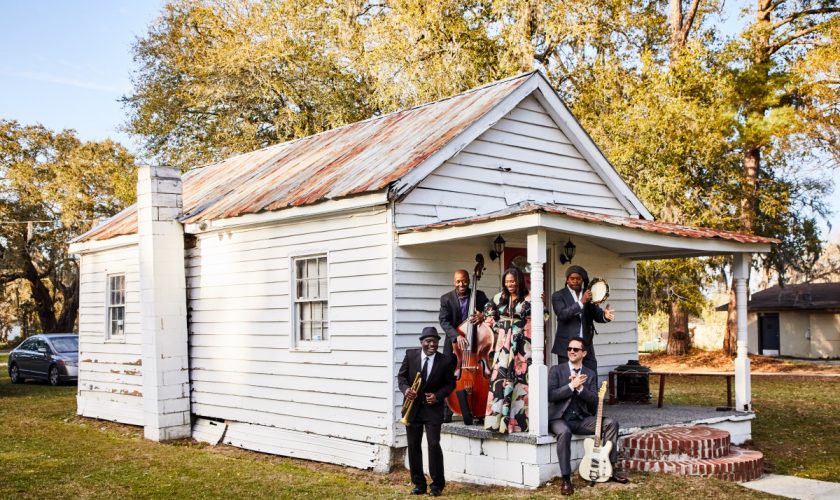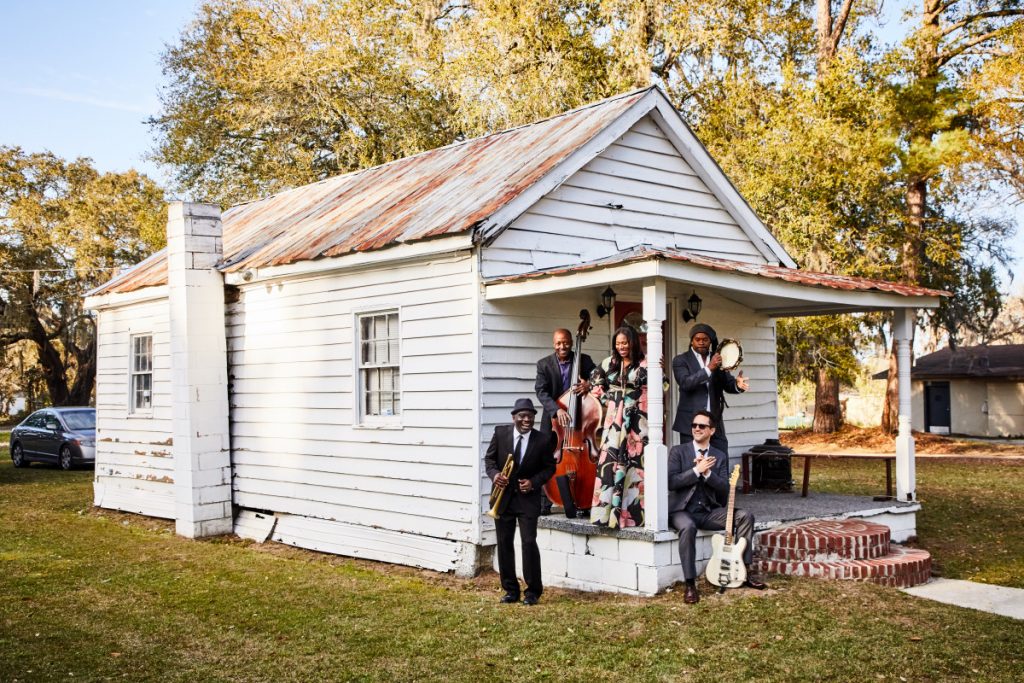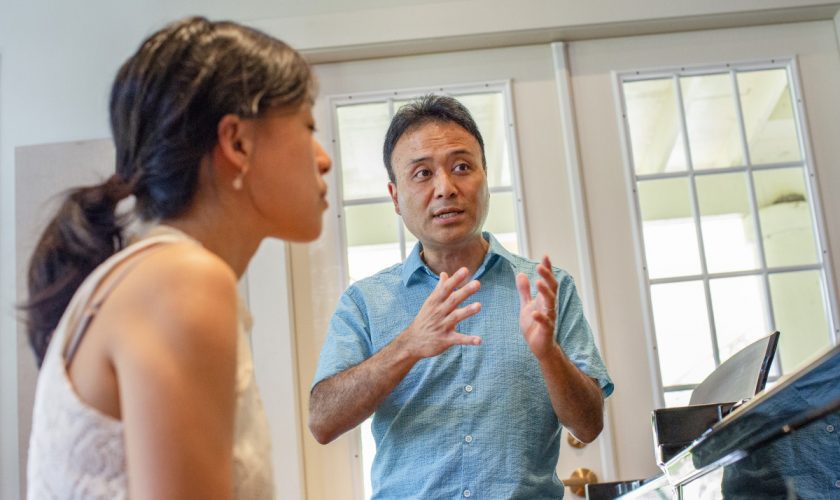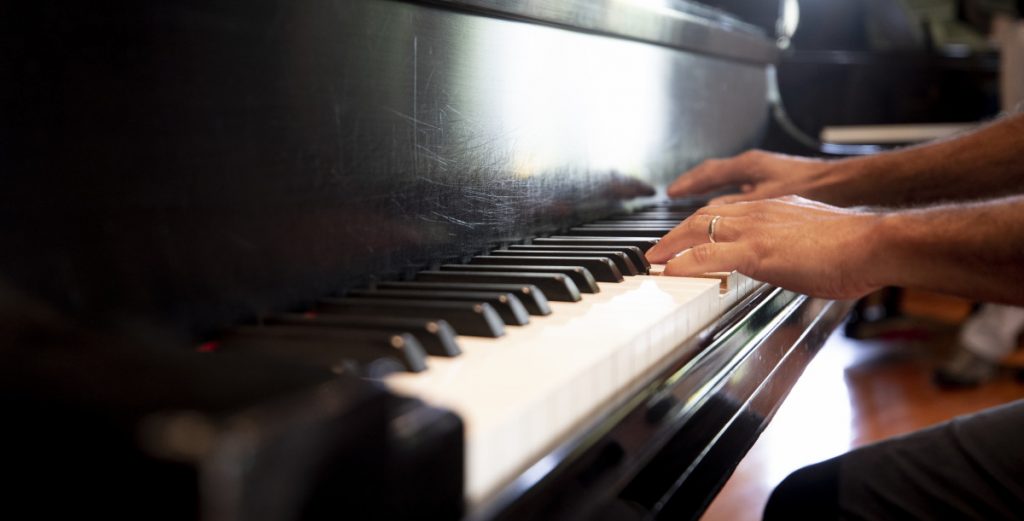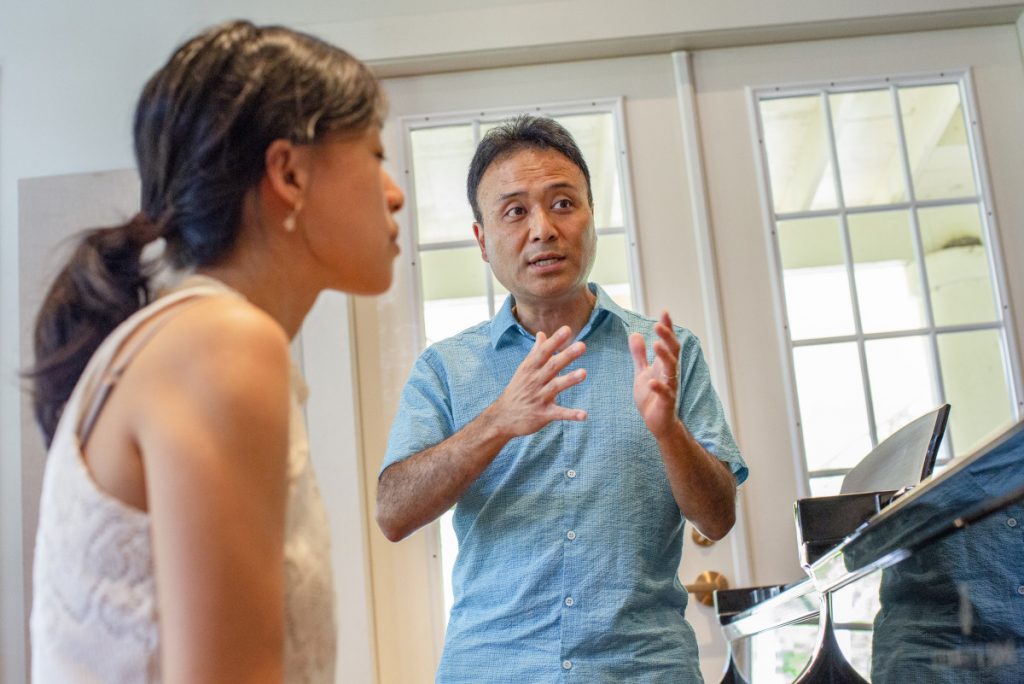NICHOLE JIANG – STAFF WRITER
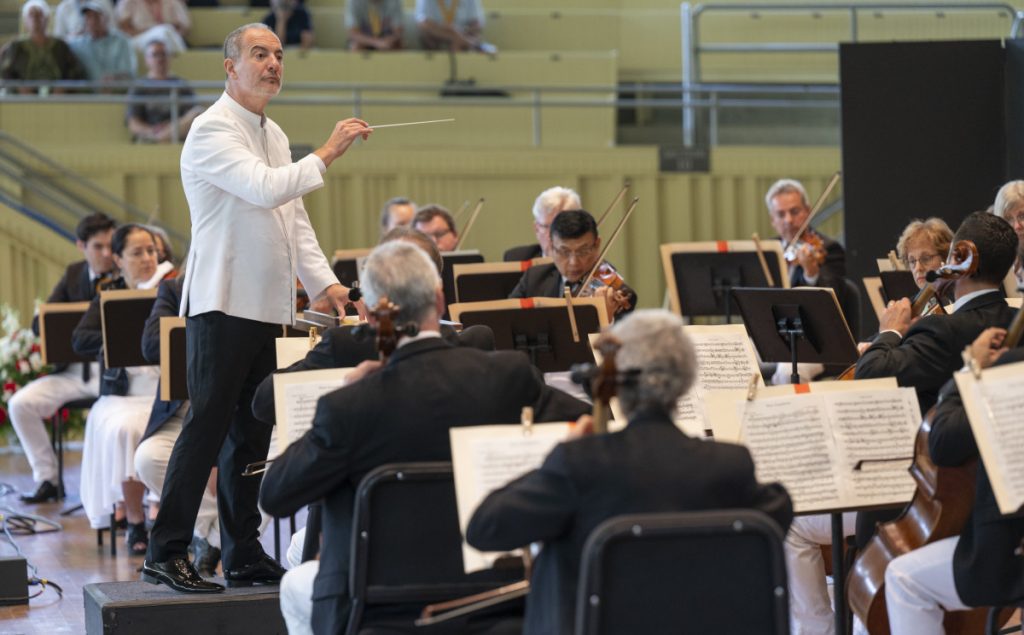
Darkness has been a prominent theme in everyone’s lives this past year and a half. Chautauquans can now experience both darkness and hope through music at 8:15 p.m. Thursday, Aug. 5 in the Amphitheater with the Chautauqua Symphony Orchestra.
The opening piece for the concert, under the baton of Music Director Rossen Milanov, is both special and personal as it is the Chautauqua premiere of composer-in-residence: Frances Pollock’s piece “God is Dead, Schoenberg is Dead, but Love will come.” Pollock portrays a strong message of staying hopeful during times of darkness and taking a stand against nihilism through this piece.
“I wrote this piece this past year when everything was really scary, especially in the field of the performing arts,” Pollock said. “There was a lot of uncertainty, because our field didn’t pivot. … There was a lot of nihilism that was going on, which was that this is never going to get better or things can’t improve, and this was my protest against that. I didn’t want people to just throw in the towel and give up.”
The piece also represents hope for Pollock after personal losses during this time — two people she was close with died by suicide.
“I just felt that we were all in a dark place,” Pollock said. “(I’m) trying to say we need to push through this, and we need to look to tomorrow.”
The piece itself is short but includes technically challenging aspects and a haunting melody.
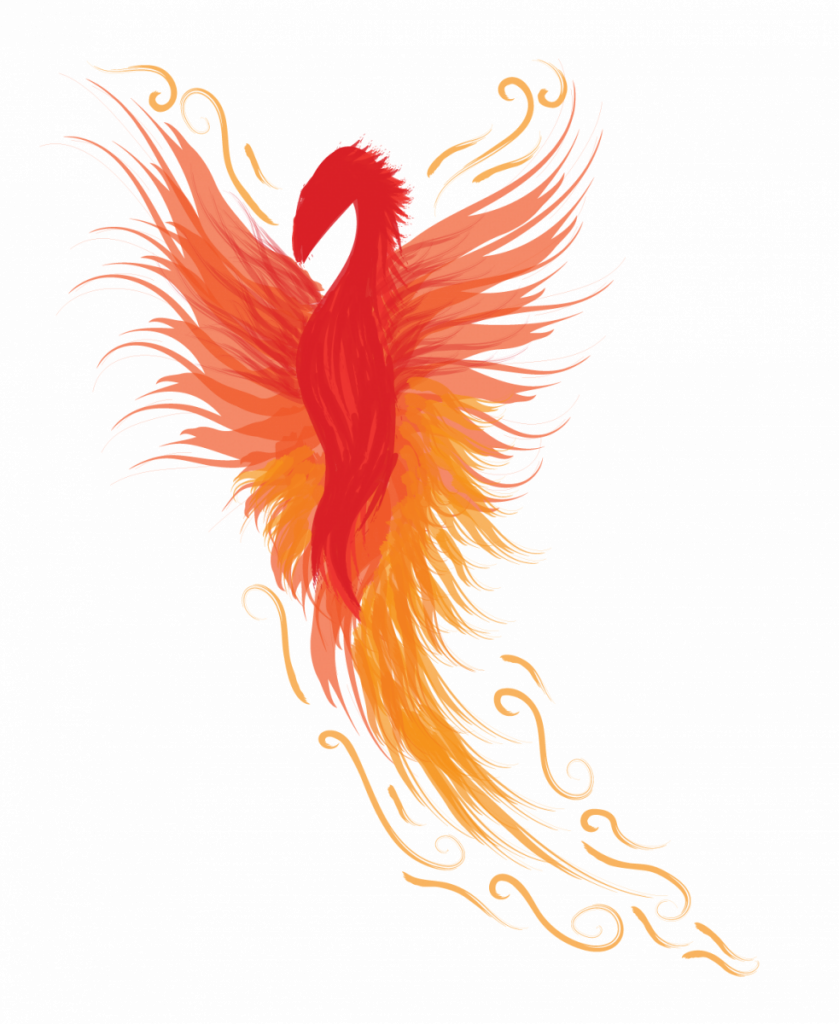
“There’s a series of notes that don’t particularly lie underneath your fingers, so you have to keep moving your fingers back and forth, and it goes kind of fast and repeats quite a few times. For the audience, it’ll be just kind of an eerie and weird effect,” said Vahn Armstrong, concertmaster. “It’s also indicated to play it with the bow very close to the bridge, so there’s a glassy and a little bit scratchy sound.
“It’s not quite a normal violin sound, and it’s going across the strings rapidly, so it’s kind of creepy.”
The audience may even recognize some melodies throughout the piece, as it samples some familiar tunes.
“The hymn itself samples two big musical references in there, and they’ll be very obvious. I don’t want to give the second one away, but the first one is a French hymn called ‘Noël Nouvelet,’ ” Pollock said. “It has a winter application and a spring application, so I was thinking about starting in this very tumultuous stormy winter, and then moving toward spring.”
Pollock said she hopes the audience can recognize the hope within the piece that love will come again
“It’s my protest against nihilism,” Pollock said. “It’s me saying we cannot throw in the towel; we all have to work towards making the world better.”
The concert will continue with Mozart’s Symphony No. 38 in D major, K. 504, “Prague” and Stravinsky’s 1919 suite arrangement of The Firebird.
Premiering in Prague in 1787, this three-movement piece takes the audience on a journey through Mozart’s appreciation for the country as well as his growing strength in technique and symphonic writing. The piece begins with a slow introduction that gives way to the main melodies. The piece then continues with a second movement that is more typical of Mozart’s other symphonies, then ends with a fast and lively third movement.
“They loved him in Prague. So he wrote the symphony — and it’s full of good stuff. I kind of think of him as pulling out all the stops during the whole thing. I just love the symphony,” Armstrong said. “Mozart, in general, is just wonderful, so I’m looking forward to playing that.”
This symphony is also unique in the sense that it heavily features the wind instruments in a way that wasn’t typical of compositions during Mozart’s time.
“It has a very mysterious and mystical quality about it, and it’s actually my favorite Mozart symphony,” said Owen Lee, bassist. “But the writing for the bassoon is just extraordinary. You don’t hear many composers writing such exposed and beautiful parts for the bassoon, and he uses that instrument incredibly well.”
The concert ends on a grand orchestral piece: the 1919 suite from Stravinsky’s Firebird that goes back to the themes of hope and strength. One of Stravinsky’s most famous compositions, this piece tells an incredible story of heroism. Stravinsky used the Russian folk tale of the firebird for inspiration. The tale tells the story of Prince Ivan who defeats Kastchei with the help of a firebird. Prince Ivan had spared the bird’s life while hunting in the forest, and in return, the firebird gifted the prince with one of her enchanted feathers. Prince Ivan uses the feather for help as Kastchei’s creatures chase after him. The magic from the feather makes the evil creatures fall into a deep slumber. Prince Ivan then frees the 13 princesses under Kastchei’s spell.
“The violin section, we’re kind of the CGI Special Effects section,” Armstrong said. “We are adding wackiness for the most part, and every now and then we have this luscious, gorgeous romantic sound. We do a lot of ‘jete.’ You’re supposed to throw the bow at the string and let it bounce. We’re putting in a bunch of kinds of special effects. It’s an incredibly powerful piece, and I suppose one could draw obvious hopeful parallels between the firebird rising from the ashes and life from the pandemic ashes. We’re rooting for this firebird.”
Stravinsky highlights winds and brass in this piece, with a bassoon solo in the firebird’s lullaby as well as a lyrical clarinet part in the princesses’ dance. The piece then ends on a horn solo that gives way to the theme of the firebird with chromatic chords that conclude this magical piece.
“It’s a great piece of music and a great piece of art that transcends time. He was a genius. This covers qualities of the savage beast that he can portray to the delicate beautiful dancing bird, and he just had a way of capturing all of that,” said Dan Spitzer, clarinetist. “It’s exciting and fresh to play that, and it’s really fun.”

